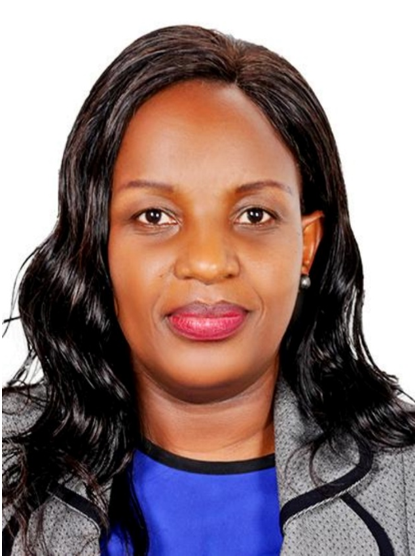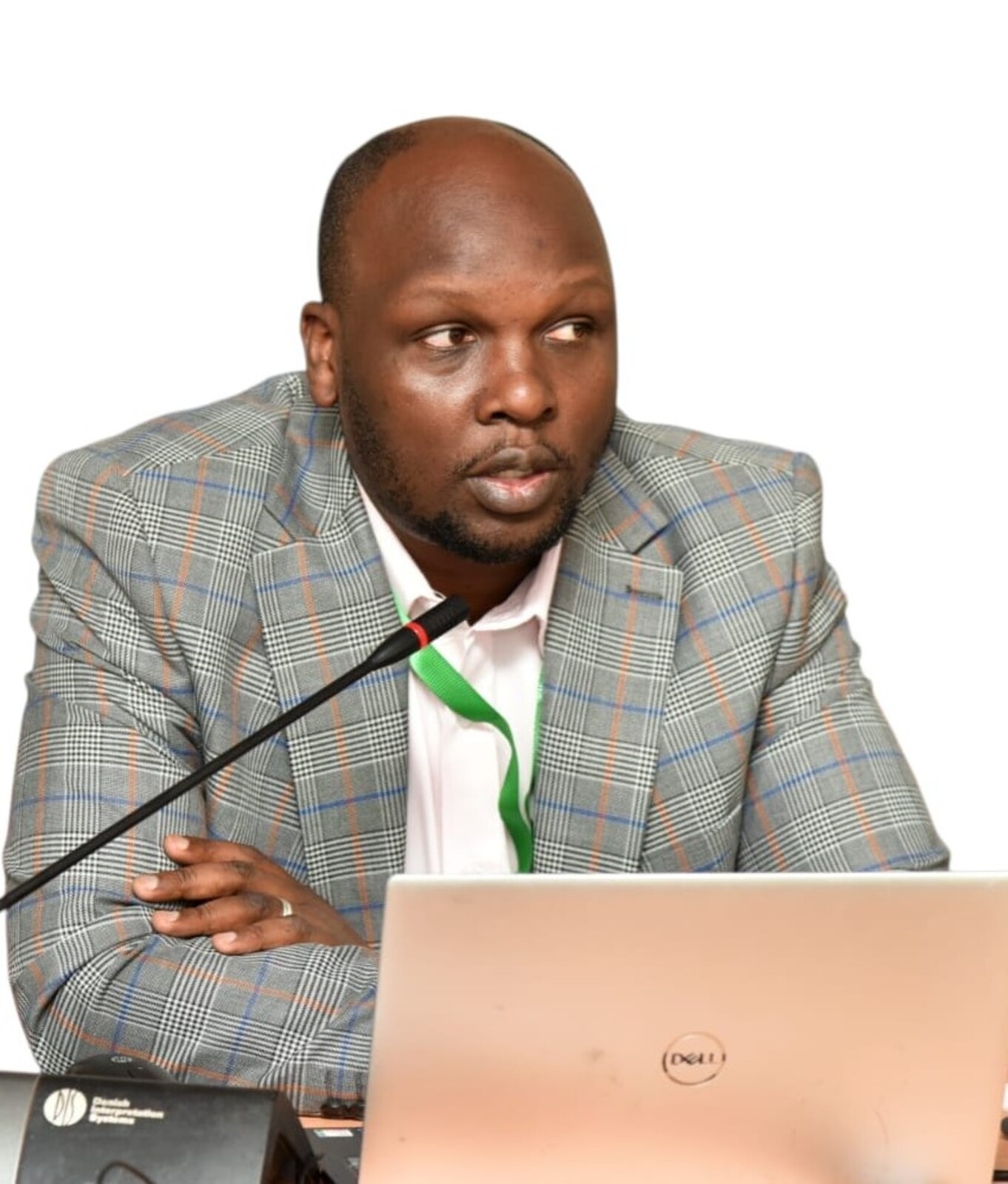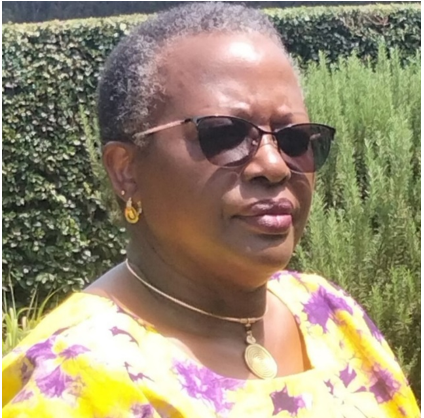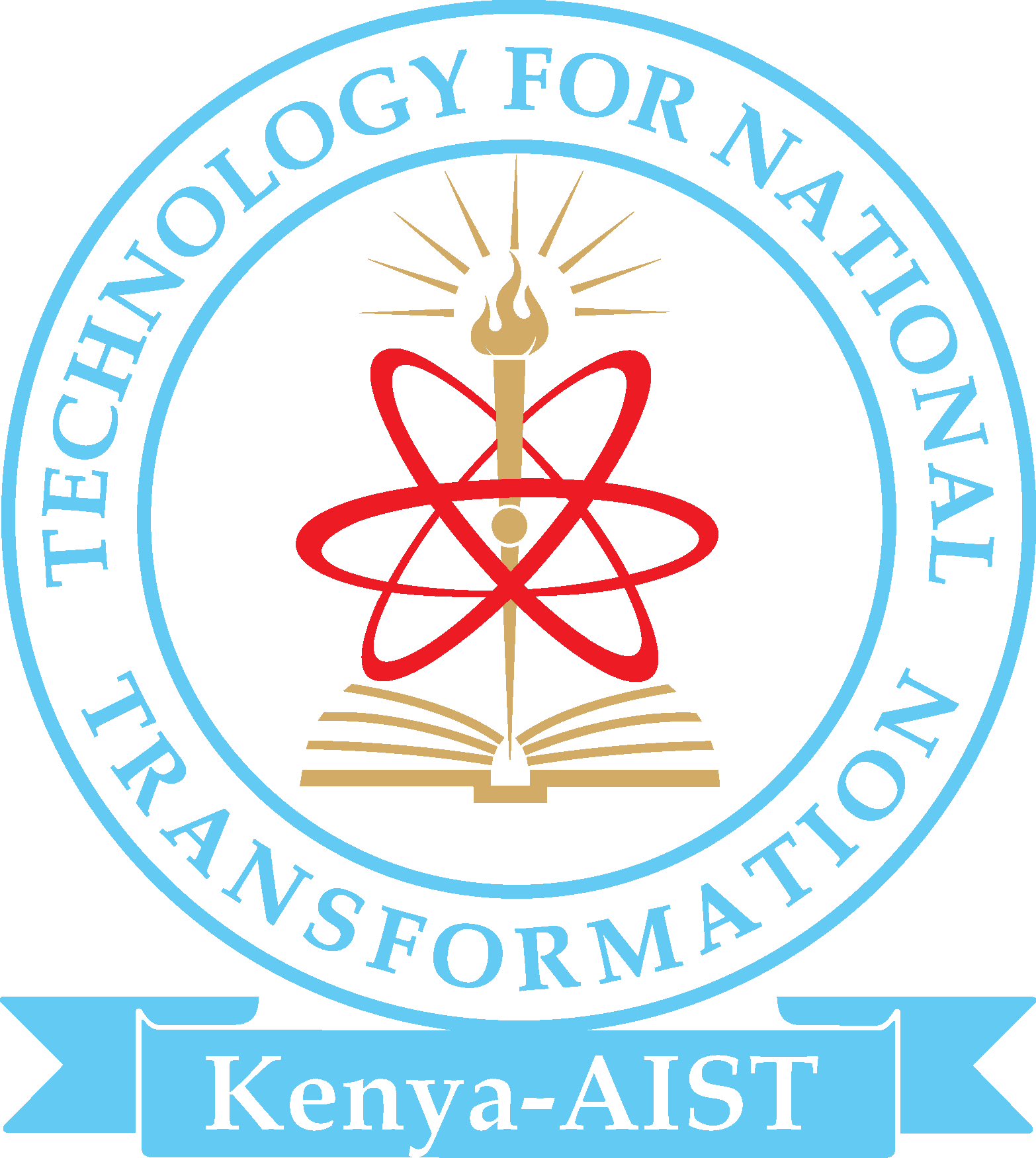Council Members
Prof. Emmanuel Mutisya - Kenya-AIST Council Chairman

Prof. Emmanuel Mutisya is a seasoned project manager, sustainability specialist, researcher, education expert, and strategist in international development policy with more than 10 years of professional and program management experience. Prof. Mutisya is currently the Chairperson of the Global e-Schools and Communities Initiative (GESCI), a Visiting Professor at the University of Nairobi, a Board Member at the Institute for Humanities in Africa at the University of Cape Town, and a Senior Consultant of Education and Skills Development at the African Development Bank.
As an accomplished senior international development leader and researcher, Prof. Mutisya offers a track record of designing, formulating, implementing, and monitoring portfolios at country, regional and continental level in Africa in higher education, skills development, research, innovation and development. Having played leading roles, including continental coordinator of education and skills development, Prof. Mutisya continues to provide advisory policy support, and strategic analysis in multicultural and multidisciplinary ecosystems.
Prof. Mutisya has held various positions in Kenya and globally. He was appointed the First Chairperson of the National Diaspora Council of Kenya by the President of Kenya (2015-2021). He was the Chairman of the Kenyans in Japan Association (2011-2019), Chairman of the Diaspora Consortium of Kenya (2015 – 2022) as well as the Coordinator of JICA funded programs in Africa under the TICAD framework. He was also a Project Manager at the United Nations University in Japan (2015-2017), where he coordinated the Education for Sustainable Development in Africa (ESDA) program and the African Youth Entrepreneurship Society (AYES) initiative. He was awarded the “Education for Sustainable Development in Africa Champion” in Kenya in 2019.
Prof. Mutisya has published over thirty peer refereed papers and book chapters. He has supervised supervised eight master’s and doctoral students and taught graduate programs in sustainability science, advanced concepts and methodologies, sustainable urban development, and money and banking.
Prof. Mutisya holds a PhD in Sustainability Science from the University of Tokyo (Japan), a Master’s Degree in Public Administration from the International Christian University (Japan) and a Master’s Degree in Mathematics from Karlstad University (Sweden).
Professor Washington Yotto Ochieng, EBS, FREng - Kenya-AIST Council Member
BSc, MSc, PhD, DSc (hc), CEng, FICE, FRIN, FInstCES, FCIHT

Professor Washington Yotto Ochieng, EBS, FREng, is the current Head of the Department of Civil and Environmental Engineering, and Chair Professor in Positioning and Navigation Systems. He is also the Interim Director of the Institute for Security Science and Technology (ISST) at Imperial College London. Formerly, he was the Head of the Centre for Transport Studies and Co-Director of the ISST at Imperial. In these roles Ochieng has enhanced and consolidated the global leadership of the Department and Institute in education, research and translation through a people-centric approach to delivery of the College’s mission underpinned by the values of respect, excellence, collaboration, innovation and integrity. Examples of the successes achieved to date is the contribution of the Department to the best ever performance by Imperial’s Engineering (the highest research power of any UK University) in the 2021 Research Excellence Framework (REF) and the highest National Student Satisfaction (NSS) at 95.2%, second best in the College at large.
Ochieng is a Member of the Board of Trustees of the Science Museum Group (SMG) and Chair of the Advisory Board of the Science Museum in London. He is the Vice President of the Royal Institute of Navigation, and Chair of the Africa Engineers Steering Committee of the Royal Academy of Engineering.
Ochieng is a Chartered Engineer and Fellow of the Royal Academy of Engineering. He is also a Fellow of the UK Institutions of Civil Engineers, Highways and Transportation, Navigation and Civil Engineering Surveyors. He has undertaken award-winning research in infrastructure resilience; trans-modal user-centric mobility – solving transport challenges around the world; design of space-based positioning and navigation systems for land, sea and air applications; air traffic management and intelligent transport systems. He has published more than 160 papers in international scientific journals (with Google Scholar citations >7823, h-index = 42, i10-index=127) and, supervised 55 PhD students to successful completion and 22 Post-Doctoral Fellows. He has conducted 35 PhD examinations globally. In 2013, Ochieng was elected Fellow of the Royal Academy of Engineering (the United Kingdom's national academy of engineering) in recognition of exceptional and sustained contribution. In 2019, Ochieng received the Harold Spencer-Jones Gold Medal (the highest award from the Royal Institute Navigation - RIN) in recognition of his ‘extensive valued advice to policy makers and for pioneering research in safety-critical navigation and positioning systems’. Ochieng is a Trustee, Member of Council and Vice President of the RIN.
In June 2022, Ochieng was appointed by the UK Prime Minister to the Board of the Science Museum Group (SMG) with the responsibility for Engineering and Technology. The SMG comprises of the Science Museum (London), National Science and Media Museum (Bradford), Science and Industry Museum (Manchester), National Railway Museum (York) and Locomotion (Shildon). In addition to the SMG Board, Ochieng Chairs the London-based Science Museum Advisory Board (SMAB).
Ochieng holds a Bachelor of Science (First Class) in Engineering from the University of Nairobi in Kenya, and MSc (Distinction) and PhD degrees in Civil Engineering from the University of Nottingham in the United Kingdom. His research career started at Nottingham where he was a Post-Doctoral Fellow before joining Racal Electronics Plc as Principal Engineer developing navigations systems (including Europe’s EGNOS and GALILEO) and products. In 1997, Ochieng joined Imperial College London, where he has led the development of the mathematical models for the Galileo Integrity Processing Facility (IPF), Galileo receiver technology (approved by the European Space Agency - ESA), integrity (quality control and monitoring) of Global Navigation Satellite Systems (GNSS) and their augmentations (space and terrestrial) for a wide variety of applications including transport. Ochieng also played a major role in the development and deployment of the Single European Sky Air Traffic Management (ATM) Research Programme (SESAR) both in technical and advisory capacities, the former including development of aircraft trajectory models, and a study of the future of ATM beyond SESAR. SESAR is a collaborative project that is modernising and overhauling the European airspace and its air traffic management.
Ochieng has been either the Principal Investigator or Co-Investigator on many national and international infrastructure projects totalling more than UK£12 million funded among others by UK Research and Innovation (UKRI), EC, ESA, US Federal Aviation Administration, New Zealand Civil Aviation Authority and the UK Department for Transport. Ochieng has been a Member of the EPSRC Peer Review College since 2005 partaking in research proposal reviews and Grant panels.
Ochieng is a Member of Imperial College London’s Space Laboratory serving on its Steering Committee and as a collaborative investigator. The Laboratory is a multi-disciplinary research network that facilitates collaboration, creativity and ideas generation across Imperial and external entities. It covers both upstream (technology) and downstream (users) aspects of the exploitation of space. The former includes space science; space technology; earth observation and remote sensing; natural and space hazards; telecoms; positioning, navigation and timing (PNT) and the many stakeholders (including academia, industry, government, non-governmental entities and end users). A multidisciplinary approach is required to ensure maximisation of the benefits of the space as a critical infrastructure underpinning many sectors and service. To ensure maximum infrastructure resilience through world leading collaborative research, Ochieng was also previously appointed to the Advisory Board of the ISST which he now leads.
In his career, Ochieng has worked with professional, government and related entities, advising on various activities. In the UK, he contributed to the Royal Academy of Engineering report on Global Navigation Space Systems: reliance and vulnerabilities. Under the Leadership of the then UK Government Chief Scientific Advisor, Professor Sir Mark Walport and his Deputy, Professor Chris Whitty, he played a major role in the Government Office for Science(GoS) Blackett Review on Satellite-derived Time and Position: A Study of Critical Dependencies. He was also invited by GoS to a Special Forum on Transport Security and served as an advisor on the report on the Future of Mobility launched by GoS in January 2019. In January 2020 Ochieng was appointed to the Science Advisory Group (SAG) at the Department for International Development (DFID) with a particular responsibility for infrastructure. He continues in this role at the Foreign, Commonwealth and Development Office (FCDO), following the merger of FCO and DFID. The FCDO leads the UK’s work to end extreme poverty and to help to save lives when humanitarian emergencies hit. SAG provides independent and impartial strategic advice on departmental science and research policy and programmes to help FCDO meet its objectives by assuring the quality and appropriateness of its substantial research portfolio. He is a Scientific Advisor at the UK Department for Transport (DfT). In 2020, Ochieng also made a significant contribution to the preparation of the UK Parliament Office for Science and Technology (POST) Parliamentary Briefing on ‘EU Space Programmes and the UK: Galileo, Copernicus and EUSST’. In November 2021, Ochieng was in the first group of 3 experts invited to give evidence to the UK Parliamentary Select Committee on Science & Technology on ‘UK Space Strategy and UK Satellite Infrastructure’.
Ochieng chairs the Africa Engineers Steering Committee and serves in the UK’s Royal Academy of Engineering Global Talent Visa Panel. He is a Member of Artificial Intelligence I Barometer Transport & Logistics Panel, Centre for Data Ethics & Innovation, of the UK Department for Digital, Culture, Media & Sport. He was an Assessor in the just concluded assessment panel for UK research. Recognising Ochieng’s world leading research, the UK Government appointed him as an Assessor in the Engineering Panel in just concluded Research Excellence Framework 2021 (REF 21). Ochieng in 2014 played the same role for the Hong Kong Research Assessment Exercise’s Built Environment Panel (RAE 2014).
In Europe, Ochieng led a report to the European Parliament on the Status of the Deployment of SESAR and was an advisor to the European Court of Auditors on the deployment of SESAR. Beyond Europe, He is a Member of the Radio Technical Commission for Maritime Services Special Group 134 (RTCM SC-134) on Integrity Monitoring of High Accuracy GNSS-based applications, and the United States Institute of Navigation. He has an established track record globally in various scientific and technological capacities in many countries including the United States, China, Brazil and the European Union.
In Africa, Ochieng is a Member of the Program Steering Committee (PSC) of DFID’s Sustainable Urban Economic Development (SUED) program for Kenya. The PSC helps oversee programme implementation through the provision of strategic direction and insights on new interventions and innovations. He chairs the African Engineers programme and is sub-panel chair of the Global Talent Visa Panel at the Royal Academy of Engineering. He is a Member of the UK-Kenya Challenge Board on Science, Technology and Innovation, chaired by the UK High Commissioner in Nairobi. In November 2022, Ochieng was appointed by the Governor of Nairobi City County (Kenya) as Mobility Special Advisor. He serves on the Africa Advisory Group at Imperial College London responsible for formulating its engagement with sub-Saharan Africa. Of particular interest to Ochieng in the context of the developing world is evidence-based delivery of the UN’s Sustainable Development Goals (SDGs). In response to an invitation from Kenyatta University (Kenya), Ochieng delivered a keynote address in 2019 on ‘using navigation data in innovative ways to solve real world problems: some lessons for sub-Sahara Africa’.
Ochieng is inspired by the urgent need for research and innovation to tackle global challenges encapsulated in the UN’s SDGs including on ‘industry, innovation and infrastructure’; and ‘sustainable cities and communities’. He is keen to add value to local, regional and global initiatives on infrastructure through his expertise and experience in infrastructure research, innovation, acquisition and operation in developed and developing countries gained in academia, industry and governmental organisations. In addition, Ochieng is keen to promote international collaboration including resource sharing to facilitate a joint approach to addressing the global challenges to contribute to the realisation of the relevant SDGs. This includes the very urgent need to face new and emerging global challenges such as COVID-19, that for example, require a fundamental rethink on infrastructure resilience by considering events that result in damage (e.g. flooding) and those that do not but could potentially impede the prevention and mitigation of pandemics. This calls for anti-fragile infrastructure that absorb shocks beyond the traditional, as technological advances facilitate the merger of the physical, digital and biological in a human-centric world.
Purity Nyawira Mureithi - Kenya-AIST Council Member

Purity Nyawira Mureithi, is a dedicated and accomplished Legal professional with a strong background in law and administration, which background has enabled her run her own law firm in a quite competitive legal environment of private practitioners in Nairobi. She holds a Master of Laws degree from the University of Nairobi, a Diploma in Law from the Kenya School of Law (KSL) and LL. B degree from the University of Nairobi. She is a member of the Law Society of Kenya, and of good standing to date since admission to the Kenyan bar. Her legal expertise is extensive, covering various practice areas, including Family Law, Property and Conveyancing, Commercial Litigation, Employment Law, and Constitutional Law. Purity has an exceptional ability to multitask in fast-paced environments, ensuring that she remains goal-driven and results-oriented, both when working independently and as part of a team. Fluent in English and Kiswahili, she possesses excellent communication skills, complemented by her proficiency in computer applications.
Purity's career journey reflects her commitment to excellence and service. She is the proprietor of Purity Mureithi & Company Advocates, a successful law firm with a general law practice, where she provides personalized legal services and advice to clients besides representing them in court. Her client base is diverse and ranges from individuals, county governments, major corporations and financial institutions. With over a decade of experience as a practicing advocate, Purity also served as the Head of the Legal Department of the P.J. Dave Group of Companies a group comprised of 5 sister companies, where she handled various legal matters, including property disputes, conveyancing, human resource and employment issues, industrial relations, and insurance claims. In her previous role as a Legal Assistant at Bhullar & Company Advocates, she honed her expertise in civil and commercial litigation, contract law, labor law, and family law. Besides her professional achievements, Purity is actively involved in various activities. In particular, she currently is part of a consortium that was awarded a tender by the Law Society of Kenya (LSK) to peer review LSK journals which team has successfully peer reviewed 2021 & 2022 LSK journals. She is equally a long standing panelist with Inooro TV station, a vernacular TV station with the second most viewership in Kenya, under the umbrella of the Roya Media Group, where she has actively enlightened the general public on topical legal matters that touch the heart of the society, hence her way of giving back to the society. The legal issues discussed have not only earned her more clientele base but has also enabled her to undertake pro bono work for the disadvantaged in society. She also loves mentoring youths through motivational forums and career guidance talks. She has equally moulded several fresh law graduates during their KSL pupillage attachments at her law firm who have ended up being successfully admitted to the Kenyan bar.
Dr. Collins K. Tanui - Kenya-AIST Council Member

Dr. Collins Kipngetich Tanui, Ph.D., is a globally recognized microbiologist and pathogen genomics expert, currently serving as Program Lead and Principal Technical Officer for Pathogen Genomics - the Africa Pathogen Genomics Initiative (Africa PGI) at the Africa CDC, African Union. In this capacity, he drives continental strategies for genomic surveillance, shaping Africa’s preparedness and response to epidemics and pandemics. His leadership spans strategic planning, capacity building, and implementation of cutting-edge pathogen genomics programs across all 55 African Union Member States, positioning Africa as a key player in global health security.
Dr. Tanui plays a pivotal role in strengthening laboratory and sequencing capacity, coordinating multi-country initiatives such as PAMTA – Partnership to Accelerate Mpox Testing in Africa, Cholera Genomic Surveillance in Africa (CholGEN) and Klebsiella genomic surveillance in Africa (KlebGEN), and advancing integrated genomic surveillance platforms for antimicrobial resistance and outbreak detection. He represents Africa CDC at high-level regional and international forums, influencing policy and fostering partnerships with global stakeholders, including Gates Foundation (GF), European Union (EU), World Health Organization (WHO), and other major donors. His expertise extends to bioinformatics, data integration, and predictive modeling, leveraging machine learning and advanced analytics to inform public health decisions.
In addition to his program leadership, Dr. Tanui is a core member of the Africa CDC Incident Management Support Team (IMST), providing technical guidance and rapid response to recent outbreaks of Mpox, Marburg virus disease, Ebola, and other priority pathogens across the continent. His contributions ensure timely genomic sequencing, data sharing, and actionable insights for outbreak containment and preparedness.
With a distinguished career spanning Africa, North America, and global networks, Dr. Tanui has contributed to international research community, outbreak response, and innovation in pathogen genomics. His work has been published in leading journals such as Nature Communications and The Lancet, and he actively shapes global discourse on infectious disease surveillance. Beyond research, he is committed to mentorship and education, developing policy, guidance documents, curricula, and training frameworks that empower the next generation of scientists in Africa.
Dr. Tanui’s vision and leadership have established him as a continental authority and global thought leader in pathogen genomics, driving Africa’s integration into the global health architecture and advancing science, technology, and innovation for public health security worldwide.
Eng. Meshack Otieno Kidenda - Kenya-AIST Council Member

Eng. Meshack Otieno Kidenda B Sc, M Sc, CE, FIEK, MCIarb, MBS, HSC., holds a BSc (Civil Engineering) from University of Nairobi and MSc in Traffic Engineering from University of Birmingham. He is a registered Consulting Engineer (CE) with the Engineers Board of Kenya, a Fellow of the Institution of Engineers of Kenya (FIEK), a member of the Chartered Institute of Arbitrators (MCIarb) and holds two National Honors of MBS and HSC
Eng. Kidenda joined the Roads Department in the Government of Kenya in 1979 on graduating from University of Nairobi and rose to the level of Chief Engineer (Roads). In the year 2000, he was appointed Director of Industrial Training (DIT), a position he served until December 2008; when he was appointed the inaugural Director General of the Kenya National Highways Authority (KeNHA). At KeNHA, he served the maximum allowed six years. He retired from the Public Service in 2016.
Eng. Kidenda has continued to serve the country in different capacities which includes serving on the Board of National Transport and Safety Authority (NTSA). Currently, he is the Chairman of the Kisumu National Polytechnic Council, Chairman Board of Management of Wigot Gardens Hotel, Chairman of Development at the SDA Church Karen Community, and a Board member of the Institute for Transportation & Development Policy, ITDP (Africa).
Dr. Roselida Owuor - Kenya-AIST Council Member
Representative of the Principal Secretary, State Department of Higher Education & Research

Dr. Roselida Owuor holds PhD in Cell and Molecular Biology from Maseno University, MSc. from University of Nairobi and a degree in Biological science with specialization in Zoology and Botany from Egerton University. Dr. Owuor is a Deputy Director of Research in the Directorate of Research, Science and Technology in the State Department for Higher Education and Research, Ministry of Education. Dr. Owuor has served at Senior Management Position in Public and Private Sector for a period of more than twenty years. She has been coordinating science, technology and innovation activities at national, regional and international level. She has wealth of experience in corporate governance. She has served in the Boards and Councils of national institutions and international organizations. Dr. Owuor participated in drafting of Biosafety Bill which was enacted in 2009. She also participated in drafting of Regulations under Biosafety Act, 2009. She coordinated finalization of Draft Science, Technology and Innovation Policy, Proposed Biosecurity Bill and Draft Biosecurity and Dual-use Research Policy.
Professor J.W. Khamasi, EBS - Acting Principal, Kenya-AIST /Council Secretary

Prof. J. W. Khamasi is an educator with more than 15 years of expertise in higher education management and leadership. She has served as the Acting Principal, Kenya Advanced Institute of Science & Technology since July 2022. Previously, she was the Registrar Academic Affairs & Research at Dedan Kimathi University of Technology (May 2014 to July 2022); a responsibility she effectively managed through various Senate Committees, Schools, Departments and student leadership. Before joining DeKUT, Prof. Khamasi served Moi University in various capacities, and the most memorable experience is her participation in the establishment of the Institute for Gender Equity, Research and Development (IGERD, 2005-2011); management of the MU-VLIR-UOS-Gender Equity Project (2005-2012) as the Project Leader. From September 2007 to April 2012, she contributed to the institutionalization of gender mainstreaming strategies at Moi University; where she earlier served as the Associate Dean, School of Education (2002-2005), and as the Head of Family and Consumer Sciences Department (2003-2008).
A graduate of the University of British Columbia (PhD), the University of New Brunswick (MEd) and the UoN (BEd), her research interests and approaches have continually informed her practice and community outreach programmes. She held a Ford Foundation Fellowship at the International Center for Research on Women, Washington DC (2003) and at the African Population for Health and Research Center, Nairobi (2006). In 2010, she was awarded Erasmus Mondus Scholarship which was tenable at Karolinska Institute, Sweden and at the University College London (2010).
She has published widely, co-edited six books and mentored many scholars. Prof. Khamasi has a special interest in vulnerable learners as evidenced in these two publications among others: Participatory Engagement and Outreach as a Safe Communication Space for School Students, in ‘Handbook on Promoting Social Justice in Education’ (2020) and Living, Learning and Teaching in a Refugee Camp: Biographies of Perseverance in ‘Higher Education Challenges for Migrants and Refugee Students in a Global World’ (2019).
Prof. Khamasi believes in leadership with a conscience; and is a member of Educational Leaders Without Borders, Comparative and International Education Society (CIES) and is a founding member of Kenya Association of Educational Administration and Management, an affiliate of the Commonwealth Council of Educational Administration and Management (CCEAM).

